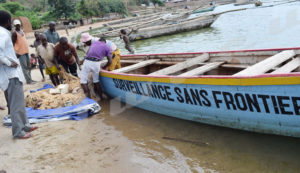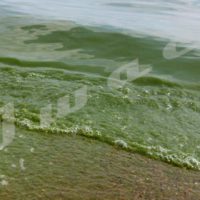Gérard Nyandwi, chairman of the Technical Commission for Security and Lake Navigation says an operation to seize and destroy prohibited materials used in fishing has been launched since June 2017. He says about 300 canoes and 1500 mosquito nets previously intended for the fight against malaria were seized and destroyed. “Other prohibited items that were confiscated include more than 800 gill nets and loincloths”, he says. Nyandwi says the gillnets come from the DRC.

Seized mosquito nets and canoes are burnt
The chairman of the Technical Commission for Security and Lake Navigation also says illegal fishing sites have been identified during a sensitization campaign. “Illegal fishermen have created different fishing sites on the shores of Lake Tanganyika and use mosquito nets in the frightening areas where fish breed,” he says adding that those mosquito nets are used to catch eggs and juvenile fish.
Nyandwi says the commission is committed to fighting against illegal fishermen as they facilitate the fraud and entrance of illegal weapons. “We are committed to cracking down on illegal fishing,” he says. The identified illegal fishermen have been fined from BIF 250 thousand to two million.
Gérard Nyandwi, however, deplores the lack of collaboration between the commission and the local administration officials to fight against illicit fishing. “Our commission is responsible for security in the Lake. With these prohibited materials, good fishing will be hampered by illegal fishermen.
Tomorrow, we will not have fish anymore,” he says. The chairman of the Technical Commission for Security and Lake Navigation ask those illegal fishermen to join the acceptable fishing sites. Otherwise, he says, sanctions are provided for in the Code of Transport and Lake Navigation and in Law on Fishing and Aquaculture.

















 IWACU Open Data
IWACU Open Data

